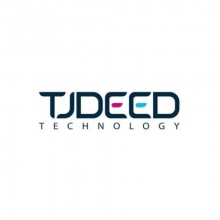
There are 46 Companies in the United Arab Emirates
that provide Disaster Recovery Services!
The United Arab Emirates' IT infrastructure has known colossal progress since 2010, and the country is expected to become one of the leading tech giants in the world by 2025. Only in 2025, the revenue of the IT Services market in the UAE is predicted to reach $3.7 billion.
Discover Top IT Companies in the United Arab Emirates specialized in Disaster Recovery and other related services. Find the best IT service providers for your projects.
Disaster recovery services are like a safety net for your business's data and operations. They help you prepare for unexpected events like natural disasters or cyberattacks, ensuring that you can quickly recover and continue your business even in challenging circumstances.
More than 327 verified IT companies specialize in providing disaster recovery services. These companies have expertise in creating and implementing strategies to protect your data and IT infrastructure. Well-known IT companies offering disaster recovery services include IBM, Dell Technologies, and Hewlett Packard Enterprise (HPE).
Handpicked companies • No obligation to hire • 100% risk-free
Featured Companies in United Arab Emirates
This month, the following Disaster Recovery companies managed to provide an outstanding service and support. It's worth taking a look.

Dev Centre House Ireland Verified Company
Dubai, United Arab Emirates Head office in: Ireland
We are a boutique software development company housing 100+ expert developers. Specialising in web, mobile, blockchain, and AI software development.

Sharjah, United Arab Emirates Head office in: United States
M TECHUB LLC builds mobile app, web, and AI solutions delivering custom software, AI agents, and staff augmentation to scale startups and enterprises.

Beezet Group of Companies Verified Company
Dubai, United Arab Emirates Head office in: Sri Lanka
A fast-growing IT and business solutions company, empowering global businesses with cutting-edge technology and digital innovation.
Explore Top Disaster Recovery Companies in United Arab Emirates

WebOrigo Magyarország Zrt. Verified Company
Dubai, United Arab Emirates Head office in: Hungary
Full-service unique software development solutions. We make businesses more efficient, secure and sustainable with our unique cloud-based softwares.

Apprise Cyber Verified Company
Dubai, United Arab Emirates Head office in: Pakistan
Apprise Cyber: #1 cybersecurity company in Pakistan. Expert services for national & international clients. Stay protected with us! Contact us Now
Salesforce Partner delivering CRM, SAP Support, Web Development, Cyber Security, IT Infrastructure, Zoho Solutions, and digital transformation.
Unleashing Business Potential in Dubai and Beyond

Fujairah, United Arab Emirates Head office in: United States
ScienceSoft USA Corporation, doing business as ScienceSoft, delivers secure healthcare, finance, and cross-industry software solutions.
TechAid IT Services is a leading IT Services company based in Dubai, delivering trusted technology and IT support services.

Dubai, United Arab Emirates Head office in: France
EXEO is a multi-specialist Managed Services Cloud and Cybersecurity Provider founded in 2012.
Arozen, based in the UAE, provides cybersecurity, IT, and white-label solutions to help MSPs and enterprises scale securely worldwide.
Empowering Digital Growth Through Smart IT Solutions

TronsIT Solutions Verified Company
Dubai, United Arab Emirates Head office in: United States
TronsIT Solutions powers businesses with tailored IT services, from cloud and cybersecurity to software development. Simplify, secure, scale!
Need to Talk Marketing Creates Strategies for your Business Growth
Staqo is a CMMI Level 3 certified tech company delivering custom software, mobile apps, and enterprise solutions with modern UX.
Alisons Technology delivers expert IT services, including web & app development, AI solutions, IT support, and digital marketing for business growth.

TMR Consulting Verified Company
Abu Dhabi, United Arab Emirates Head office in: Pakistan
TMR Consulting Microsoft Gold Partner Tier 1 CSP in implementing Microsoft Business Solutions and Microsoft licensing.

Dubai, United Arab Emirates Head office in: India
ITBENCHS specializes in offering a wide range of IT Staff Augmentation services to global companies, our Team, Consultant, Hourly, and Daily options.

TJDEED Technology Verified Company
Dubai, United Arab Emirates Head office in: Jordan
TJDEED Technology is a leading digital transformation company in Jordan, delivering end-to-end enterprise solutions across the Middle East.
RealSecure.ae provides top-tier IT managed services, specializing in cybersecurity and virtualization solutions tailored to business needs.
iConnect is a trusted IT Solutions and Technology Services company, proudly serving clients across the Middle East and Africa.
Services:
IYNFINITY is a leading Digital Marketing Agency in Dubai specializing in SEO, Google Ads, social media marketing, web design, and content writing.

Sat Microsystems Verified Company
Ras A-Khaimah, United Arab Emirates Head office in: Saudi Arabia
Top Managed IT Services in 9 countries as a top managed IT services provider! 20+ years of experience in the IT services industry.
Express Computers LLC is an IT infrastructure and application solutions based enterprise that caters to the different segments of the Information Tech...
Services:
- 1
- 2
Filter Disaster Recovery Companies in United Arab Emirates by Cities
Find the right tech company near you or from a specific city. Some of the best companies might be located in smaller cities.
Find more Disaster Recovery companies around the world
TechBehemoths is the world's most advanced and user-friendly platform to match IT Companies with real clients without hustle.
UAE IT Industry: Insights About Companies and General Profile
The United Arab Emirates' IT infrastructure has known colossal progress since 2010, and the country is expected to become one of the leading tech giants in the world by 2025. Only in 2025, the revenue of the IT Services market in the UAE is predicted to reach $3.7 billion. The United Arab Emirates (UAE) has set a bold vision to become a leader in Artificial Intelligence (AI) by 2031, to enhance its technical development. Additionally, the UAE aspires to become a leader in tech advancements with tech cities like Dubai, Abu Dhabi, Sharjah, Al Ain, and Ajman.
The hourly rate and the average salary of a UAE-based web developer reach $16.71 K/year and $8.03/hour. This makes the UAE one of the most expensive places for IT projects and a good destination for web professionals. However, due to immigration policies, becoming a resident of the UAE is more a dream than a reality, and few manage to become one. On the other hand, this allows the country to provide IT services and products created and developed almost exclusively by its own human resources.
Why You Should Work With UAE-based IT Companies
IT companies from the UAE have developed their ability to attract more clients from all over the world by adapting to market trends and adopting new technologies. Actionable insight into customer needs, productivity gains, and increased security are just some of the benefits gained from the early adoption of high-end technology and a developed IT infrastructure.
What You Should Be Aware of When Working With a UAE-based IT Company
As it was mentioned in the beginning, the UAE is one of the most expensive destinations for web projects. Even though the quality of the IT product and/or services is high-end, the hourly rate and cost per project are reasons to give second thoughts about whether it is worth working with UAE-based IT companies.
Additionally, the limited capacities of the companies based in the UAE are another key point to pay attention to. Since web agencies in the UAE mainly rely on their own human resources, it is possible to experience relatively average project management.
Are UAE-based IT companies Reliable?
Regionally and globally, the Emirates have a good reputation in executing and managing IT projects, and the adopted government policies in 2018, available to this day, increased process transparency and made the companies open to new opportunities. With the high-end technology companies acquired, companies from the UAE are considered a good option for futuristic web projects, based on a report by the British Center for Business.
How the UAE IT Industry Relates to the Neighboring Countries
With 2 extremely important business centers: Dubai & Abu Dhabi, the Emirates found themselves in a good position compared to neighboring countries in terms of IT infrastructure. Based on a report from Tech Radar, the UAE has invested twice as much as any country in the region in the IT infrastructure and has become a leading provider of IT services, with Qatar, Saudi Arabia & Oman behind, in the named order.
Overall, the UAE is considered one of the most promising countries that will bring the IT culture in the Arabian Peninsula to another level and stimulate neighboring countries to develop and compete. Considering the risks of the oil market and IT, the UAE chose the second as a good investment opportunity and alternative to the first one.
What is Disaster Recovery and what are its benefits for your projects?
Disaster recovery services are like a safety net for your business's data and operations. They help you prepare for unexpected events like natural disasters or cyberattacks, ensuring that you can quickly recover and continue your business even in challenging circumstances.
More than 327 verified IT companies specialize in providing disaster recovery services. These companies have expertise in creating and implementing strategies to protect your data and IT infrastructure. Well-known IT companies offering disaster recovery services include IBM, Dell Technologies, and Hewlett Packard Enterprise (HPE).
Disaster recovery service providers use a range of tools and technologies to safeguard data and ensure business continuity. These include backup and recovery software, cloud storage solutions, virtualization technologies, and monitoring systems. Popular cloud platforms like Amazon Web Services (AWS) and Microsoft Azure also play a crucial role in disaster recovery.
Disaster recovery services are typically included in a suite of services that also address business continuity and risk management. Other related services may include:
-
Business Continuity Planning: Developing comprehensive strategies to keep your business running during disruptions.
-
Cybersecurity Services: Protecting against cyber threats and data breaches, which are often a cause of disasters.
-
Risk Assessment: Identifying vulnerabilities and potential threats to your business.
-
Emergency Response Planning: Preparing for immediate actions in the event of a disaster.
-
Data Protection Services: Implementing data encryption, access controls, and data loss prevention measures.
Selecting the right IT company for disaster recovery services requires evaluating their experience, the comprehensiveness of their disaster recovery solutions, and their responsiveness in case of an emergency. Look for providers who offer tailored disaster recovery plans that align with your specific business needs and recovery time objectives (RTOs).
Disaster recovery service providers are essential for various projects and scenarios, including:
-
Data Centers: Ensuring the continuity of critical data center operations.
-
E-commerce Websites: Protecting online businesses from downtime due to technical issues or cyberattacks.
-
Healthcare Systems: Safeguarding patient records and medical systems to ensure uninterrupted care.
-
Financial Institutions: Meeting regulatory requirements for data protection and business continuity.
-
Manufacturing Plants: Minimizing production disruptions caused by equipment failures or supply chain interruptions.
Disaster recovery services are crucial for companies of all sizes and industries, including:
-
Small Businesses: Protecting essential data and ensuring minimal downtime.
-
Enterprises: Managing complex IT environments and maintaining regulatory compliance.
-
Healthcare Providers: Safeguarding patient records and critical medical systems.
-
Financial Institutions: Ensuring uninterrupted banking and financial services.
-
Government Organizations: Maintaining public services and data integrity during emergencies.
Disaster recovery is not a one-size-fits-all solution. It's essential to conduct a risk assessment and work with a disaster recovery service provider to develop a tailored plan that matches your business's specific needs and budget. Regular testing and updates of your disaster recovery plan are also crucial to ensure it remains effective as your business evolves.











